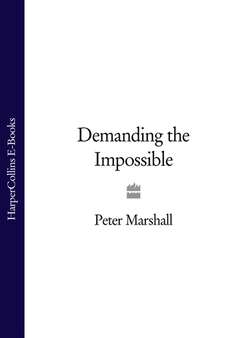Читать книгу Demanding the Impossible - Peter Marshall - Страница 30
François Rabelais
ОглавлениеThe most colourful and rumbustious French libertarian was the incomparable Francois Rabelais. An ex-Franciscan and Benedictine monk who practised and taught medicine, Rabelais came to hate monks and scholasticism. In his masterpiece Gargantua and Pantagruel (1532–64) he delighted in satirizing the religious, political, legal and social institutions and practices of sixteenth-century France. The work contains a wonderful mixture of bawdy humour, sharp satire and zest for life.
At the same time, there is a serious side to Rabelais. He adopted a form of naturalistic optimism which led him to anarchist conclusions. He believed that human nature is fundamentally good and only corrupted by our education and environment. He therefore called for the full development of our faculties ‘because free people, well-born and well-educated, keeping good company, have by nature an instinct and incentive which always encourage them to virtuous acts, and hold them back from vice.’1 It follows that if people are left to themselves their ‘honour’ or moral sense is sufficient to govern their behaviour without the need for any external rules or laws.
Rabelais gave flesh and blood to these abstract principles in Book I of Gargantua and Pantagntel (1534) where he describes the founding of the abbey of Thélème. Gargantua gives the abbey to Friar John (Frère Jean des Entommeures: Friar John of the Hearty Eaters) for his help in the war against the power-mad despot Picrochole, who has a ‘bitter bile’ (the meaning of his name in Greek). Friar John has all the faults of monks but none of their vices. He is ignorant, dirty and gluttonous, but also brave, frank and lusty. His abbey is built like a magnificent and luxurious country house without walls, the very opposite of a convent or monastery. Its name Thélème in Greek means ‘will’ or ‘pleasure’. The gifted and well-bred members are free to leave whenever they choose. There is no chastity, poverty and obedience: they can marry, be rich, and live in perfect freedom. They have no need for laws and lawyers, politics, kings and princes, religion, preachers and monks, money and usurers. All their life is spent ‘not in laws, statutes or rules, but according to their own free will and pleasure’. The only rule is ‘fais ce que voudras!’ (Do what you will!).
Rabelais’s ideal commonwealth anticipates the exuberant licence of Fourier’s phalansteries in which the satisfaction of all desire is considered positive and healthy. But it is primarily a Utopia for the new aristocrats of the Renaissance like Rabelais himself who looked to a society based on intelligence and knowledge rather than on power and wealth. His rebellion remains an individual and imaginative one and does not translate itself into action against the structure of society. While he opposed tyranny in all its forms, in the real world Rabelais hoped for nothing more than a peaceful and benevolent monarchy. He might have called for the freedom of noble men and women in his chivalric Utopia, but it was not until the eighteenth century that philosophes asserted the natural nobility of all free men and women. Nevertheless, Rabelais, for his exuberant and joyful celebration of freedom, deserves an honourable mention in any history of libertarian thought.
